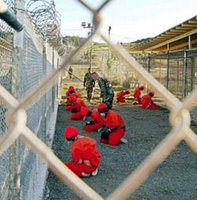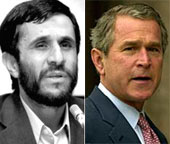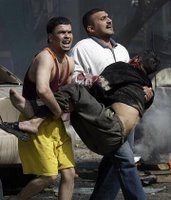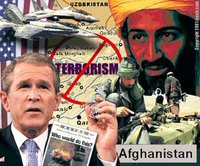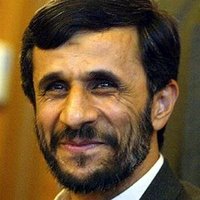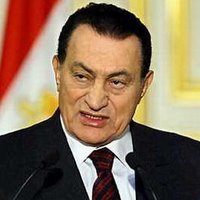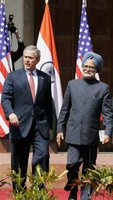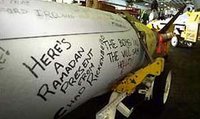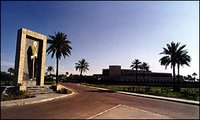 AFP
AFP Most people in 33 out of 35 countries worldwide believe that the US-led war in Iraq has increased the threat of terrorism, a survey for BBC World Service radio suggested.
An average of 60 percent in the 33 nations agreed that the March 2003 invasion had increased the likelihood of terrorist attacks, with just 12 percent believing the opposite. A further 15 percent thought it had no effect.
The survey of 41,856 people by Canadian pollsters GlobeScan and the US Program on International Policy Attitudes (PIPA) also claimed there was overall support in 20 countries for US forces to withdraw in the next few months.
But 21 of the 34 countries asked appeared in favour of troops staying in the region until stability is achieved, if the new Iraqi government requested it.
PIPA director Steven Kull said that despite the administration of US President George W. Bush framing the intervention in Iraq as a means of fighting terrorism, "all around the world most people view it as having increased the likelihood of terrorist attacks.
"
The near unanimity of this assessment among countries is remarkable in public opinion polling."
Other responses suggested that 21 countries thought the removal of former Iraqi president Saddam Hussein was a mistake; overall, 45 percent were against removing him from power while 36 percent supported the action.
Greatest criticism of the move came from Argentina (74 percent), with strong opposition from Spain (65 percent) and Germany (61 percent).
In Britain, whose government backed the US-led campaign and still has about 8,000 troops in southern Iraq, 40 percent thought removing Saddam was a mistake; in the United States, the figure was 32 percent and in Iraq, 23 percent.
Strongest support for toppling Saddam came from Iraqi respondents (74 percent), Brazil and Poland (65 percent), the United States (60 percent) and Britain (49 percent).
In Britain, 77 percent of those questioned thought the terrorist threat had risen since the war, with 55 percent in the United States saying likewise and 75 percent in Iraq.
China topped the list at 85 percent, followed by South Korea (84 percent) and Egypt (83 percent).
Support for troops to stay appeared more constant: Iraq (49 percent), Britain (56 percent) while American and Afghani respondents were most in favour on 58 percent.
-- The countries polled were: Afghanistan; Argentina; Australia; Brazil; Britain; Canada; Chile; China; Democratic Republic of Congo; Egypt; Finland; France; Germany; Ghana; India; Indonesia; Iran; Iraq; Italy; Kenya; Mexico; Nigeria; Philippines; Poland; Russia; Saudi Arabia; Senegal; South Africa; South Korea; Spain; Sri Lanka; Tanzania; Turkey; the United States; and Zimbabwe.

